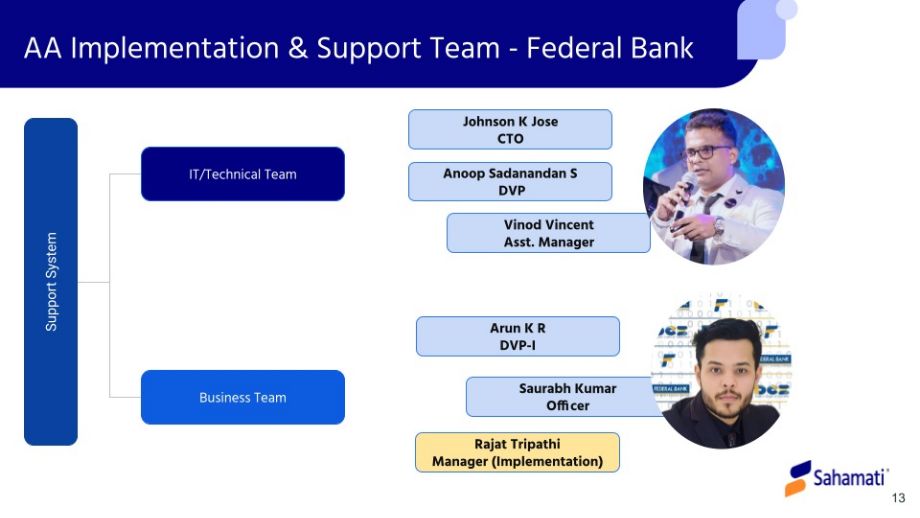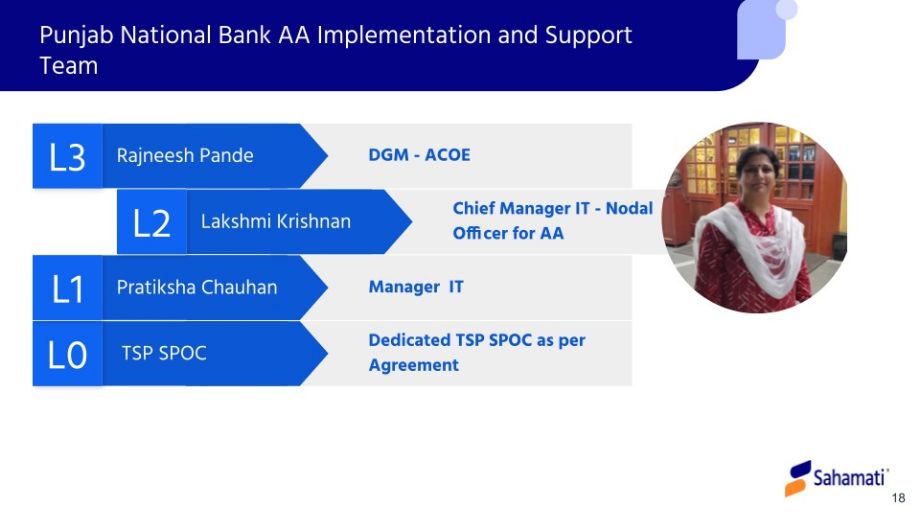In the fast growing, rapidly evolving Account Aggregator (AA) landscape, Financial Information Providers (FIPs) are at the heart of the AA ecosystem, facilitating secure and efficient data exchange. As the ecosystem scales and demand for data fetches increases, FIPs face significant performance challenges. This blog explores two case studies of the common issues faced by FIPs and integrated solutions for optimization that was presented in the 19th edition of the AA Grievance Redressal System Monthly Meeting, exploring insights from recent discussions, we uncover how support teams serve as linchpins, enhancing the ecosystem’s functionality. We explore strategies for entities to adopt similar approaches, ensuring a seamless journey ahead.
The session showcased two compelling success stories from Federal Bank and Punjab National Bank, illustrating how the support teams have significantly evolved to meet the growing needs of the AA ecosystem. Representatives from both Banks shared their experiences, detailing their support journey and emphasising the critical role of consistency in resolving customer issues. These narratives underscored the significance of effective support teams in ensuring smooth operations and enhancing customer satisfaction within the AA ecosystem.
Let’s begin by exploring the case study of how Federal Bank effectively improved their FIP APIs performance as presented by Mr. Vinod Vincent, Assistant Manager, Federal Bank and his team.
The representatives focused mainly on the tactical approach induced while dealing with the support tickets wherein every ticket is considered as a feedback, similar patterns are identified across tickets raised and thereby tackled in a more targeted manner.
Federal Bank structured their solutioning for both technical and Data Quality related issues, with an integrated approach that involved implementing various App monitoring tools and employing Database refinements, along with developing an agile Micro-service based architecture that allowed them to streamline the process better. As a result, Federal Bank experienced a significant reduction in the number of support tickets raised and an increase in the overall success rates of the APIs. This improvement is a testament to the perseverance and consistency of their team, combined with the effective implementation of integrated methodologies.

Mr Vincent also shed light on how leveraging Support Application helped in the optimisation of FIP API performance. Armed with the SAANS platform that enables real time monitoring and analysis of API performance, and specific details of failure instances reported on Support Application, Federal Bank was able to diagnose and address data quality issues and technical failures. Furthermore, continuously monitoring market feedback via Support Application helped the team to refine their API performance iteratively.
The session was followed by another profound case study from Punjab National Bank, presented by Ms. Laksmi Krishnan, Chief Manager IT and Nodal Officer for AA and her team. Discussions primarily focused on the robust Issue Resolution process implemented by PNB, which contributed to incremental change in FIP performance and the decline in the number of tickets reported by FIUs.

M/s. Krishan also elaborated on the process adopted by her team to address technical failures and data quality related issues faced by her team. Her team engaged in weekly discussions with AAs and stakeholders, including Sahamati team – Kunal, to monitor and review performance metrics, identify implementation bugs, and ensure alignment on solutions. The establishment of a robust Support team with standardised SOP for issue resolution played a crucial role in systematically addressing and rectifying these problems.
She also touched upon the role support applications play in smoothening the journey, such as identifying failure points and continuously monitoring market feedback that enabled her team in prompt closure of tickets. The importance of channelling the feedback to the right team also proved to be pivotal for optimisation of the process. Besides, performing a detailed analysis on a daily basis, specifically on the type of tickets raised and assigning it to the specialised team was crucial.
Overall, the session sparked engaging discussions among participants, offering valuable insights into the crucial role support teams play in improving the functionality of the AA ecosystem and how every entity can integrate similar strategies moving forward. Additionally, the webinar underscored the significance of forming a supportive community that encourages continuous dialogue about experiences and opportunities for future enhancement of support teams.